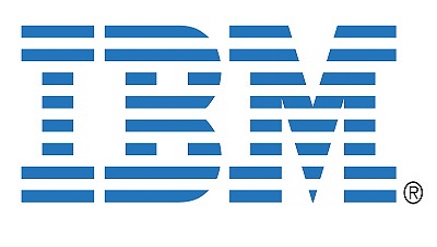E-Business
IBM Leads Mobile Application Development, Testing Consulting Services Market

IBM has been identified as a Leader in the IDC MarketScape: Worldwide Mobile Application Development and Testing Services 2014 Vendor Assessment.
Following an evaluation of 19 service providers against more than 100 criteria, IBM was recognized in the “Leaders” category for its performance across business services capabilities, sales/distribution structure, employee management, customer satisfaction criteria and overall project management capabilities.
In addition, IBM was credited for the scale of its user experience and creative design skills, through IBM Interactive Experience, the largest digital agency in the world, according to Ad Age.
The announcement reinforces IBM’s commitment to helping organizations speed their mobile enterprise transformation and eliminate barriers to adoption.
The IBM MobileFirst portfolio features key capabilities in analytics, data, security and cloud to deliver innovative solutions.
These solutions empower employees to make more effective decisions and enhance customer interactions; help developers create, deploy, manage and secure mobile apps, on-premise or in the cloud; and enable organizations to manage and secure mobile devices, applications, content and transactions with confidence.
The report emphasized IBM’s mobile application development and testing services strengths across traditional technologies, native mobile device technologies and cloud platforms.
Other highlights included clients’ high regard for IBM’s technical expertise in mobile, global scale and flexibility to work with the client’s application development methodology, whether the client used an agile, waterfall or hybrid approach.
Also noted was IBM’s strong industry partnerships, customer service and overall project management as key assets they valued when working with IBM.
“This report is further recognition of IBM’s unmatched mobile enterprise consulting leadership” said Paul Papas, global leader, IBM Interactive Experience. “IBM’s trusted mobile experts understand our clients’ business, create strategies that align with industry and user expectations, and execute with scale and speed through our unique combination of design, strategy, analytics and enterprise mobile skills.”
In late March, IDC also published a MarketScape on Worldwide Mobile Application Development, Testing, Management and Infrastructure Services2 in which IBM was also ranked a Leader. This new report is an adjunct of that work, focusing on application development and testing services only.
IBM’s 6,000 mobile experts have been at the forefront of mobile enterprise innovation.
IBM has secured more than 4,300 patents in mobile, social and security, which have been incorporated into IBM MobileFirst solutions that enable enterprise clients to radically streamline and accelerate mobile adoption, help organizations engage more people and capture new markets.
Through IBM’s partnership with Apple, the two organizations are transforming enterprise mobility with a new class of industry specific business apps.
IDC MarketScape vendor analysis model is designed to provide an overview of the competitive fitness of ICT (information and communications technology) suppliers in a given market.
The research methodology utilizes a rigorous scoring methodology based on both qualitative and quantitative criteria that results in a single graphical illustration of each vendor’s position within a given market.
IDC MarketScape provides a clear framework in which the product and service offerings, capabilities and strategies, and current and future market success factors of IT and telecommunications vendors can be meaningfully compared. The framework also provides technology buyers with a 360-degree assessment of the strengths and weaknesses of current and prospective vendors.
E-Business
Galaxy Backbone Celebrates the Federal Government’s Paperless Civil Service Milestone

Galaxy Backbone (GBB) aligns with and celebrates the successful announcement by the Office of the Head of the Civil Service of the Federation on the achievement of a Paperless Civil Service, a significant milestone in Nigeria’s public sector reform and digital transformation agenda.

The milestone was formally highlighted at a press briefing led by the Head of the Civil Service of the Federation, Mrs. Didi Esther Walson-Jack, who commended Galaxy Backbone for its sustained support and contribution throughout the implementation of the programme.
GBB has played a critical role in enabling this transition by providing secure, scalable, and shared digital infrastructure that supports the digitisation of government processes across Ministries, Departments and Agencies (MDAs). Through the 1Government Cloud, MDAs have been empowered to migrate from paper-based workflows to digital platforms, improving efficiency, collaboration, data security, and service delivery across the Federal Civil Service.
In addition, GovMail, GBB’s secure government email platform, has strengthened official communication, enhanced records management, and reinforced cybersecurity standards—key pillars in sustaining a paperless operating environment.
Galaxy Backbone acknowledges the collective efforts of the Office of the Head of the Civil Service of the Federation, Permanent Secretaries, Directors of ICT, consultants, partners, and dedicated public servants whose commitment and collaboration ensured the smooth delivery of this initiative.
The Managing Director/Chief Executive Officer of Galaxy Backbone, Prof. Ibrahim Adeyanju, was represented at the press briefing by Akintayo Bamisaye, Acting Group Head, Research, Digital Innovation and Skills Department (RDIS).
GBB describes the achievement as a strong close to 2025 and reaffirms its commitment to supporting the Federal Government in building a modern, efficient, and digitally enabled public service.
E-Business
Jumia CEO says Black Friday Signals Nigeria’s E-Commerce Maturity

At the close of 2025, Temidayo Ojo, the CEO of Jumia Nigeria, reflected on a year-end shopping season that points to the growing maturity of the country’s e-commerce market. “Black Friday is no longer a single, short-lived spike in activity,” he said.

“It has become a familiar, anticipated moment in the retail calendar, where consumers shop deliberately and with confidence.”
Preliminary KPIs for the two months ended November 30, 2025, show strong year-on-year growth in both orders and Gross Merchandise Value (GMV), with GMV growth outpacing order growth. This indicates that customers are placing fuller, more considered baskets rather than shopping in fragmented transactions. Nigeria ranked among Jumia Group’s better-performing markets, with engagement remaining steady throughout the Black Friday period rather than spiking briefly and tapering off.
A key factor behind this performance is the growing familiarity of consumers with online shopping. Customers are increasingly leveraging platform features such as saved carts, brand stores, and price comparison tools to plan purchases in advance. This trend suggests that digital commerce is becoming embedded in everyday habits rather than being viewed as a one-off event.
Ojo also highlighted the role of Jumia’s JForce network in connecting digital commerce to local communities. “Our agents are critical to ensuring that customers across Nigeria, including secondary cities and smaller communities, have access to variety, consistent pricing, and reliable delivery,” he said. “During peak periods like Black Friday, JForce agents can respond faster, serve more customers efficiently, and build stronger local relationships. This isn’t just a distribution channel—it’s a pathway to sustainable income and inclusion.”
Reflecting on the overall performance, the CEO concluded: “What we’re seeing this year-end is steady engagement across categories, stronger consumer confidence, and partners like our JForce agents benefiting from increased activity.
“It confirms that Nigeria’s e-commerce ecosystem is maturing, growing in a more structured and resilient way. As the December Holiday Sale continues, we expect these patterns of familiarity, trust, and participation to sustain momentum and drive both commerce and community impact across the country.”
E-Business
Galaxy Backbone Tops FG’s Website Performance Ranking

Galaxy Backbone Limited (GBB) has been ranked first overall in the 2025 Federal Government Website Performance Scorecard.

This is a landmark achievement for Nigeria’s digital economy.
The ranking, conducted by the Bureau of Public Service Reforms (BPSR), is the definitive benchmark for digital excellence and transparency across all Ministries, Departments, and Agencies (MDAs).
Professor Ibrahim Adepoju Adeyanju, managing director and CEO of Galaxy Backbone, received the award during a ceremony in Abuja.
He described the feat as a validation of the agency’s“Nigeria First”data sovereignty strategy and its relentless pursuit of service excellence.
This recognition comes as the Federal Government intensifies its push to achieve a fully paperless civil service by December 31, 2025.
GBB has been the primary architect of this transition through its 1Gov Enterprise Content Management (ECM) platform, which now hosts the operations of almost all federal MDAs.
The award adds to a growing list of accolades for Galaxy Backbone in 2025, following its recent win of the “International Standard Excellence Award for Best IT Service Provider.”
As the central hub for government shared services, GBB’s performance serves as a blueprint for other agencies currently undergoing digital transformation.
With its expanded fiber-optic backbone now covering over 13 states and its secure cloud solutions, Galaxy Backbone remains the cornerstone of Nigeria’s vision to become a leading digital nation by the end of the decade.

 Telecom3 days ago
Telecom3 days agoT2 Faces NCC Probe in Benue Over Major Service Outage in 9 LGAs

 Telecom3 days ago
Telecom3 days agoMTN Nigeria Crowns Ayo Benzi Winner of Next Afrobeats Star

 E-Business3 days ago
E-Business3 days agoJumia CEO says Black Friday Signals Nigeria’s E-Commerce Maturity

 E-Financial3 days ago
E-Financial3 days agoGTCO Secures Regulatory Approvals to Raise N10bn in Private Placement

 General News3 days ago
General News3 days agoNDIC Reinforces Full Oversight Compliance to Safeguard Depositors

 E-Financial2 days ago
E-Financial2 days agoBanks to Impose N50 Stamp Duty on Transfers of N10,000 and Above from January 1

 Telecom3 days ago
Telecom3 days agoNCC Unveils Draft 5-Year Spectrum Roadmap, 60 GHz License-Exempt Guidelines to Boost Broadband, Innovation

 E-Financial2 days ago
E-Financial2 days agoHow Nigeria’s New Tax Law Could Redefine Risk in the Banking Sector

























